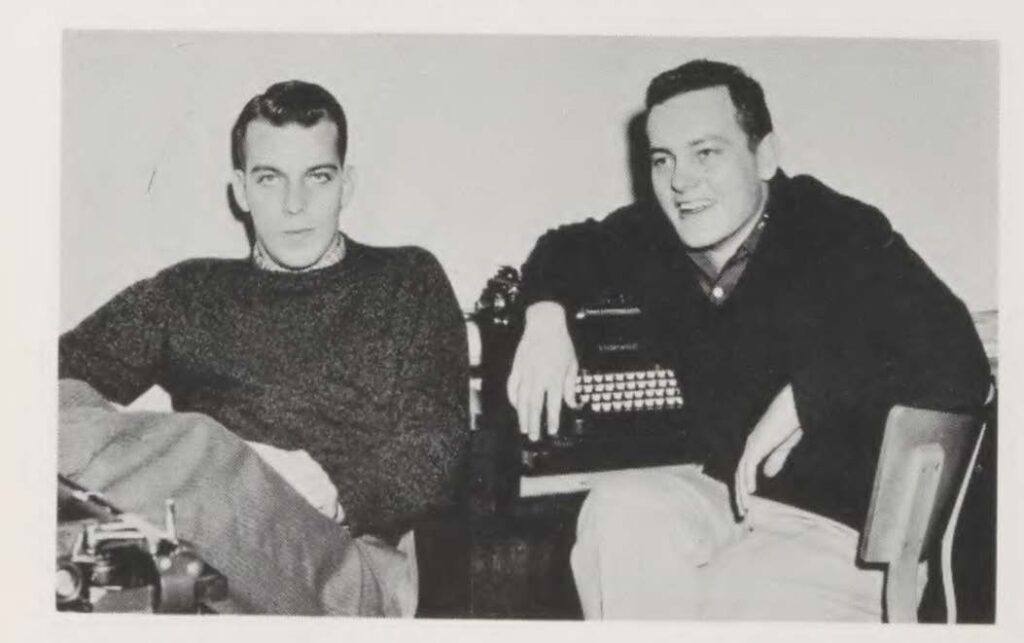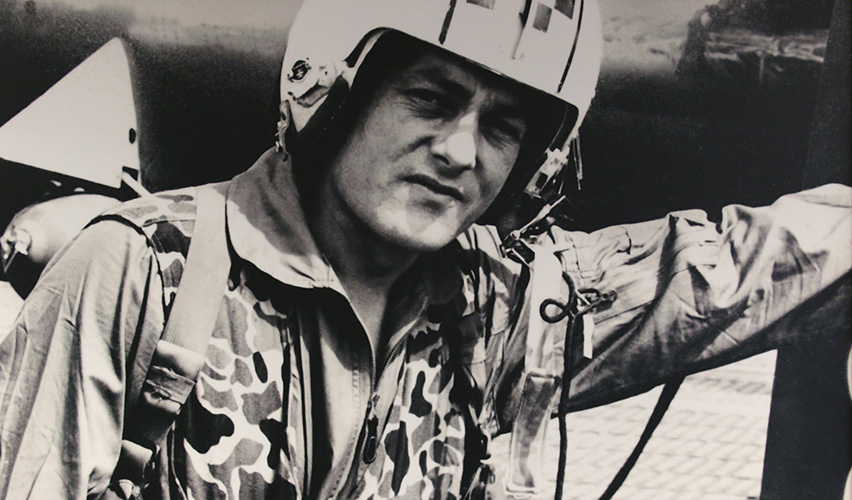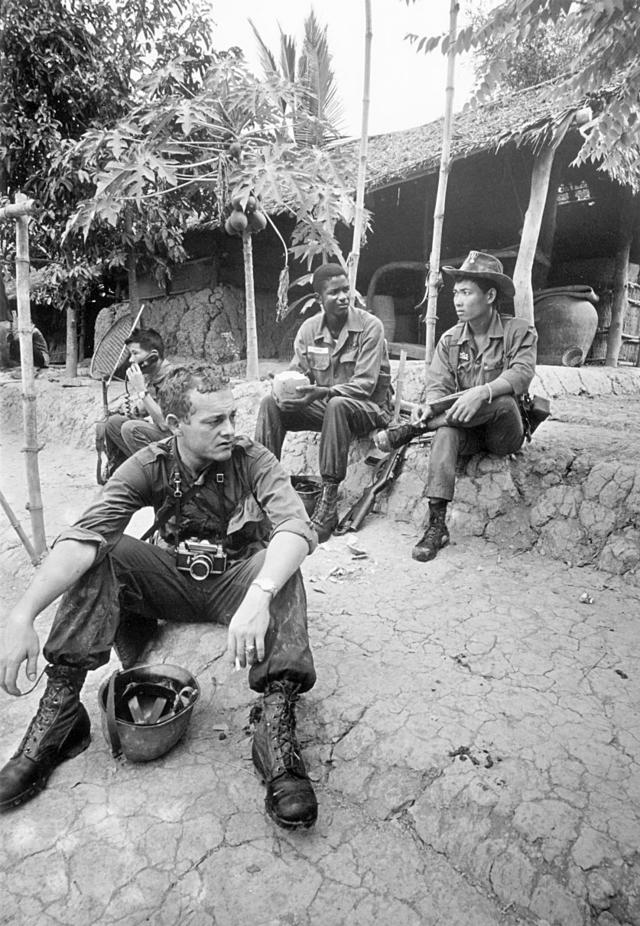Bob Schieffer and the Texan Experience in the Vietnam War
One of the most prominent American journalists of the 20th century, Bob Schieffer has moderated presidential debates, held all four major Washington national assignments; the White House, the Pentagon, the Department of the State, and United States Congress, and completed a masterful forty-six-year career with the Columbia Broadcasting System (CBS). Schieffer attended Texas Christian University, where he pursued a Bachelor of Arts in Journalism and held the position as a sportswriter for the T.C.U. Skiff. Upon graduating in 1959, Schieffer served three years in the U.S. Air Force as a public information officer, before joining the Fort Worth Star-Telegram as a journalist in 1963. In 1965, Schieffer had the opportunity to travel and report on the growing crisis in Vietnam, specifically on the day to day lives of Texan troops on the front lines. This entry is a comprehensive analysis on Schieffer’s experiences, and reports gathered from Texan troops during his time in Vietnam during the war.

1959 Horned Frog yearbook
From December 1965 to April 1966, Schieffer reported daily on his firsthand experiences and the personal accounts of Texan troops on the front lines. Schieffer’s first reports discuss the pleasurable experience of Christmas Eve at the Nha Trang Air Base, broadcast Christmas carols to the troops below.”[1] After only being in Vietnam for a couple of weeks, Schieffer shares his first experience of being in combat while accompanying Capt. Gail Anderson, Capt. Bruce Wallace, and Maj. Buzz Blaylock of the 1st Air Commando Squadron during a bombing mission, “The great explosions caused by the fiery napalm billow up into the sky and now we can see Bruce and Buzz coming in at tree-top level with their rockets blasting sampans out of a nearby river.”[2] Alongside direct action, Schieffer witnessed the strategic operations to win the hearts and minds of the locals at Cam Ne where the Marine band performed for the villagers. Throughout the war, military operations that prioritized rapport among the villages were common and the Department of Defense encouraged the media to report the transparency of these missions. In his report titled “Marine Band Vital To Village Front,” Schieffer states, “They are covering up the fighting holes, trying to pacify the village and help establish a militia to defend it.”[3] Schieffer characterizes the Marine’s mission in the village to be vital and helpful for the safety of the villagers and states that the Vietcong were responsible for burning schools and causing terror. Schieffer experienced the dangers of unconventional warfare by terrorism, a tactic often utilized by the Vietcong to cause fear and chaos to the American troops. Schieffer’s report illustrates the crafty, yet lethal tactic by the Vietcong to target cities such as Saigon that harbored non-combat troops and civilians. “His weapons are the mine set off in the restaurant, the plastic bomb on the handlebars of the bicycle parked near the BOQ, the grenade thrown at random from his motor scooter.”[4] A similar example is seen in his report when he and his Marines were ambushed by deadly sniper fire and guerilla tactics, “Another grenade dropped in behind us and we ran back into the trees. Somebody put the sergeant on a poncho and dragged him back to a hospital aboard a ship.”[5] Schieffer details the extreme frustration and brutality the American forces faced as a result of guerilla warfare waged by the Vietcong.

Bien Hoa, South Vietnam
Time in Vietnam, Bob Schieffer College of Communication

1966, South Vietnam
“Veteran CBS News Anchor Bob Schieffer Signs Off,” CBS News, April 8, 2015
Schieffer’s primary objective in Vietnam was to report the daily lives of Texan troops. Schieffer shares the heroic actions of Lt. Bob Wood from Fort Worth, Texas, who piloted a medical helicopter on numerous rescue missions into enemy hot zones “but the other day they shot one of our patients in the hand after we had him loaded on the helicopter- we’re not going to stand for that kind of stuff.”[6] In adherence to policies set by the Geneva Conventions, medical personnel were prohibited from offensive armament, making them vulnerable and easy targets for the enemy. Prior to the Vietnam War, conventional troops never experienced the combination of guerilla warfare and rugged terrain in Vietnam, forcing American troops to adapt in their own way to unconventional tactics. Schieffer’s interview with Gunnery Sergeant Marvin Lange, of Bryan, illustrated the unique role snipers had in the war, “It’s much more personal-the scope on your rifle brings the enemy soldier right up in your face-it’s not like a fire fight where everybody is shooting at once.”[7] Snipers were extremely effective on both sides during the war due to the cover and concealment offered by Vietnam’s jungles. Schieffer’s report illustrates to the American people the complexity and unorthodox methods of the Vietnam war.
Schieffer’s experience reflects a transparent and non-partisan approach to the Vietnam War. In the evidence provided, Schieffer avoids generalizing and making hard conclusions in his reports, instead approaches the troops in a humanistic manner, focusing on the sensory details of the events. During a time when journalism pursued radical rhetoric, Schieffer’s diverse reports offer a transparent perspective to the daily lives of Texan troops and locals.
[1] Bob Schieffer, “Carols Fill Skies Over Viet Posts,” Fort Worth Star-Telegram, December 26, 1965: 1.
[2] Bob Schieffer, “Dive Bombers Swoops Low Hit Cong Targets Hard In Vietnam,” Fort Worth Star-Telegram, January 9, 1966: 1.
[3] Bob Schieffer, “Marine Band Vital To Village Front,” Fort Worth Star-Telegram, January 24, 1966: 1
[4] Bob Schieffer, “New Form of Terrorism Hits Saigon,” Fort Worth Star-Telegram, March 5, 1966: 1.
[5] Bob Schieffer, “War Calm Shattered By Sniper,” Fort Worth Star-Telegram, February 14, 1966: 2.
[6] Bob Schieffer, “VC Fire Ires Pilot of Medic Copter,” Fort Worth Star-Telegram, March 15, 1966: 1.
[7] Bob Schieffer, “Sniper Have Exacting Job,” Fort Worth Star-Telegram, January 30, 1966: 3.
For Further Reading
Appy, Christian G. American Reckoning: The Vietnam War and our National Identity (New York: Viking, 2015).
Christian G. Appy’s American Reckoning: The Vietnam War and our National Identity, discusses the negative impact of mainstream media on shaping the national self-perception from the Vietnam War. This book encompasses the broad factors of the conflict that destroyed the image of the United States in being the world leader of democracy and progress.
Hammond, William M. Reporting Vietnam: Media and Military at War (Lawrence, KS: University Press of Kansas, 1998).
William M. Hammond’s Reporting Vietnam: Media and Military at War, analyzes the dynamic relationship between journalists and the government during the war, along with social, political, and strategic levels that encompassed the media’s relationship with the government. This reading offers a comprehensive yet condensed analysis of Hammond’s previous two volumes that totaled over a thousand pages. As journalists battled against the South Vietnamese and United States government for free press, resulted in the total collapse of rapport between journalists and the government.
Becker, Elizabeth. You Don’t Belong Here: How Three Women Rewrote the Story of War (New York: Public Affairs, 2021).
Elizabeth Becker’s You Don’t Belong Here: How Three Women Rewrote the Story of War, covers the cultural and sexist barriers that challenged women reporters tasked with covering the Vietnam War. Becker, a reporter who covered the rise of the Khmer Rouge during the 1970s, presents a biographical composition of Catherine Leroy, a war photographer whose works can be seen on Life magazine, Frances FitzGerald, an American journalist whose works on the Vietnam War won the Pulitzer Prize, and Kate Webb, an Australian war correspondent whose fearless drive allowed her to cover harsh realities of the Vietnam War and at one point, even becoming a prisoner of war herself.